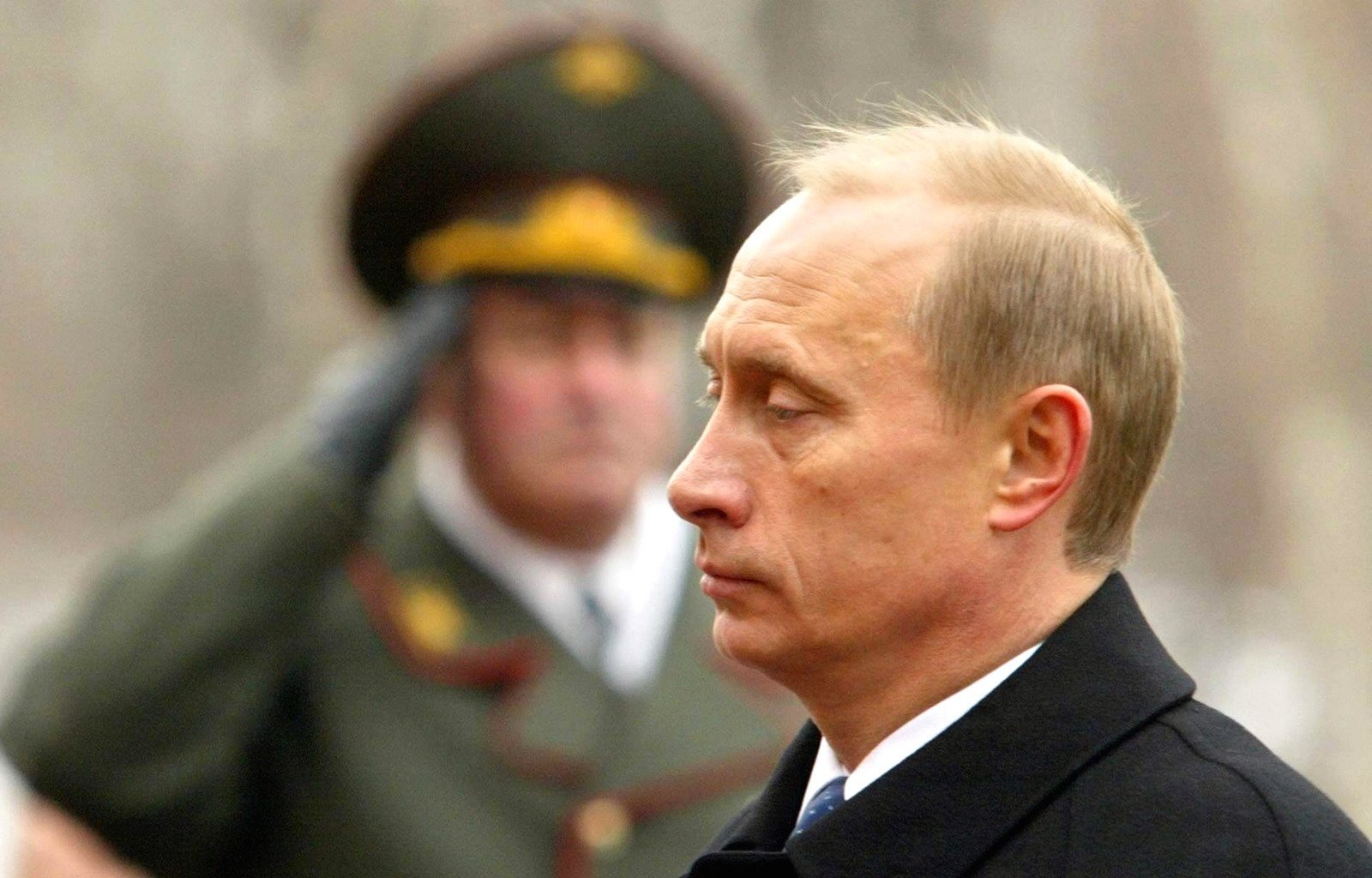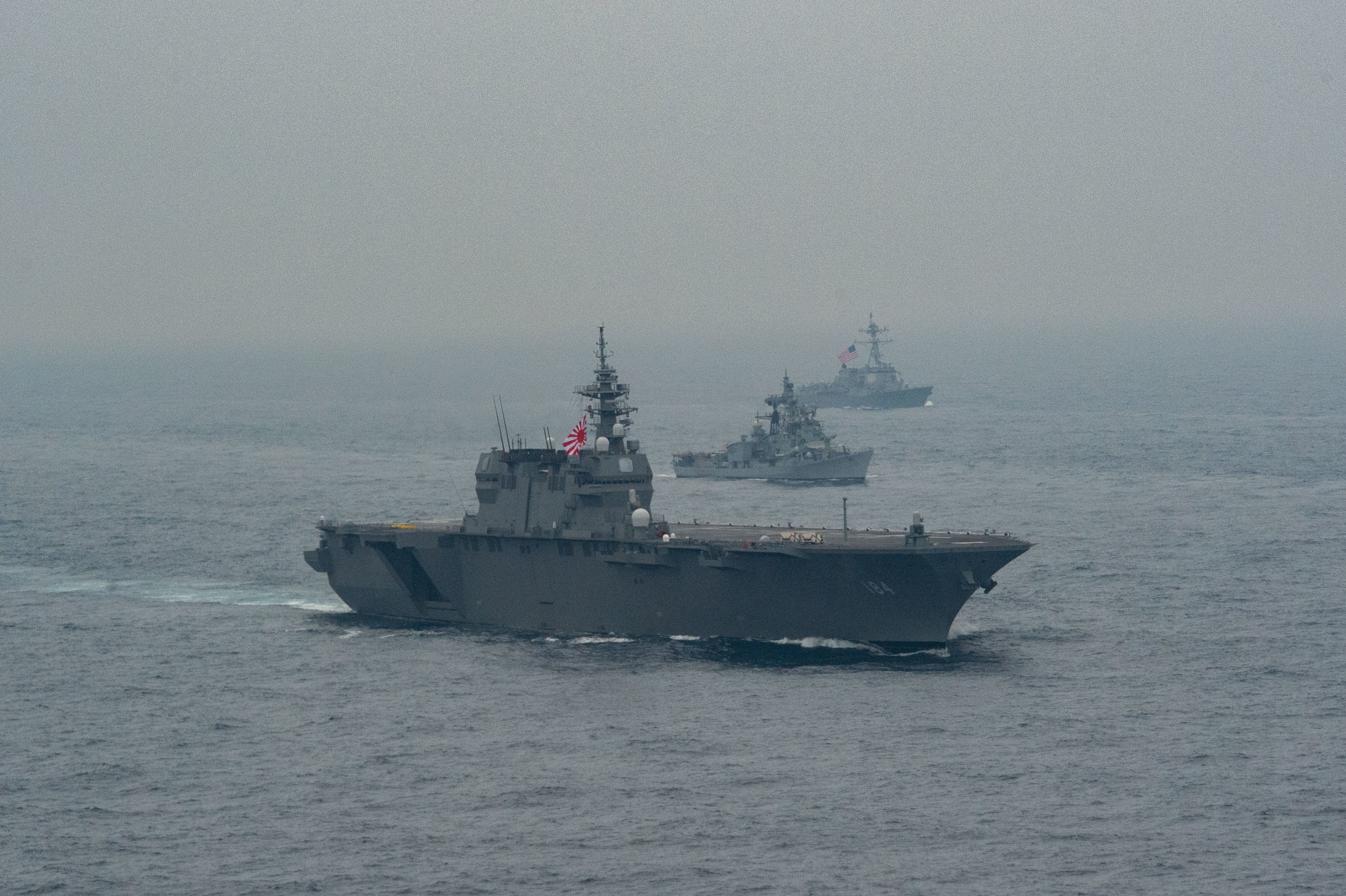
A frontline prime minister in the Ukraine crisis said today that Russian President Vladimir Putin underestimated Ukraine’s willingness to fight off a Russian invasion.
Putin also underestimated the Western democracies and their Pacific partners’ united response to the invasion, Lithuanian Prime Minister Ingrida Simonyte said Monday at an online Washington Post forum. Simonyte noted this isn’t the first time Putin has threatened to use nuclear weapons to settle a crisis in the Kremlin’s favor.
Simonyte added that the Ukrainians are “fighting for their land and their freedom. … [Putin] has very limited information on what’s happening on the ground in Ukraine.”
Simonyte said that “despite talks about talks [between Russia and Ukraine], they want Ukraine to surrender” under Russian conditions. At the same time as the Kremlin talks peace, “Russians are carpet-bombing Kharkiv. Everything they say is a lie.”
Kharkiv is Ukraine’s second largest city with a population of more than 1.4 million people.
In agreeing to send a delegation to meet with the Russians, Ukrainian President Volodymyr Zelensky was quoted Sunday as saying, “I do not really believe in the outcome of this meeting, but let them try to make sure … that I, as president, have not tried to stop this war.”
Speaking Friday in a separate online forum, Andrea Kendall-Taylor, director of the Center for New American Security’s Transatlantic Security program, said “we know one man is calling the shots, President Putin,” in the unfolding events. She added he has been increasingly isolated since the outbreak of the COVID-19 pandemic two years ago.
Instead of being “welcomed by Ukrainians with red flowers,” Simonyte said the Russians have been running into stiff resistance.
Jeffrey Edmonds, a senior research scientist in Russian Studies at the Center for Naval Analyses, said Friday there was “a high-level of optimism” among Russian military leaders that its pincer movement could reach objectives quickly before they crossed the borders. Kremlin military leaders did not want to become “bogged down in street-to-street fighting” in large cities or have to fight insurgents.
Russian civilian military leaders believed Ukraine’s government and armed forces would collapse quickly. After that happened, they could “cobble together” some type of pro-Russian government, said Michael Koffman, CNA’s Russian Studies program director, during Friday’s CNAS Forum.
Speaking at a Monday Pentagon press briefing, John Kirby said Russian forces are also experiencing logistics and sustainment problems, slowing their advance on Kyiv, the capital. He added that on the fifth day of fighting, “the Russians will learn from this” unexpected delay and still have significant forces in reserve.
Nearly 75 percent of the forces Russia committed to the Ukraine invasion are now in Ukraine, a senior defense official said Monday morning.
During the Washington Post event, Simonyte said Putin will find Ukraine “a little bit too big,” with too many people to control through a puppet regime or Russian occupation.
Simonyte said Putin went into this operation believing NATO and the European Union would only offer “words and prayers’’ to Ukraine if invaded. But by the weekend, Putin issued the nuclear alert order in response to what he called the “illegitimate sanctions” placed on Russia and “aggressive statements” from leading officials in NATO countries directed at Russia.
A Pentagon spokesman said Monday morning there has been no noticeable change in Russia’s nuclear posture. Later Monday, Kirby said “Mr. Putin is the one escalating this,” in threatening nations who ship military supplies and equipment to Ukraine.
“NATO reacted quickly and swiftly” to the invasion, with the United States and other allies sending “boots on the ground,” a phrase Simonyte used several times in the forum, as well as more air and maritime defenses to nations in Europe, like Lithuania. President Joe Biden has said he will not send U.S. troops to Ukraine.
“NATO is not an attack alliance; it is a defense alliance,” Simonyte said.
In talking with U.S. soldiers arriving in Lithuania they say “we’re here to defend this land” and their presence “reflects the situation on the ground,” she said.
Simonyte called Germany’s swift turn around from not sending any military aid to Ukraine to increasing its defense spending to more than 2 percent of gross domestic product and sending arms to Ukraine in response to the invasion “absolutely game-changing.”
Simonyte said NATO and EU members are in agreement there “should be stronger deterrence in the region,” and that means spending more on defense. She added Lithuania exceeds NATO’s spending threshold and has been shipping arms and weapons to Ukraine as the crisis developed.
With Lithuania bordering Russia’s Kaliningrad enclave, which is home to a large naval force, she said the biggest differences between her country and Ukraine is that Lithuania is a NATO member, falling under the collective security arrangement, and an EU member. The increased NATO presence in her nation “is a response to what Putin [is] doing” and Belarus’ actions with Russia in the invasion.
An economist by profession, Simonyte said Europeans’ reluctance to impose severe sanctions on the Kremlin for its past aggression in Georgia, Moldova and Ukraine because “we will hurt people” and because the sanctions weren’t coordinated is over.
“Now [the severity of the sanctions] is very well coordinated” among European nations as well as Pacific democracies like Japan, South Korea and Australia. She praised the Biden administration’s work in this effort. “Russia is actually very much integrated into the world economy,” primarily through energy exports and its reliance on the international financial system.
Simonyte said the new sanctions will have an impact on Kremlin leaders, oligarchs, its Central Bank and also the Russian public.
“This war is fought in their name,” she said.
She said Putin’s public popularity following the annexation of Crimea in 2014 was very high, but has eroded over time and has led to the jailing of political opponents and crackdowns on non-governmental organizations.
“It’s not possible to jail everyone,” Simonyte added when asked about demonstrations in Russia against the invasion.
At the CNAS Friday forum, Kendall-Taylor said “it’s really, really hard to understand” what Putin’s endgame is in Ukraine: Decapitate the existing government, partition the country or something else. Putin, now 70, “is thinking of his legacy.”
For those who praised Putin for his planning before attacking Ukraine, Simonyte said: “You cannot assess this under business plan criteria. There are people being killed, innocent people, kids. What Putin is doing is murder.”





